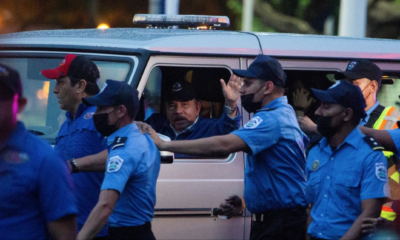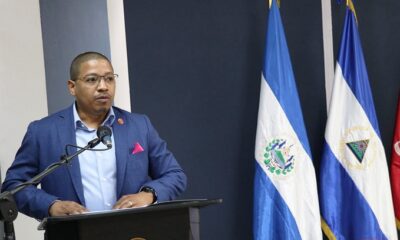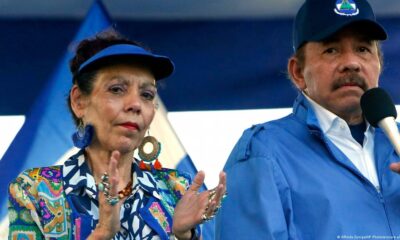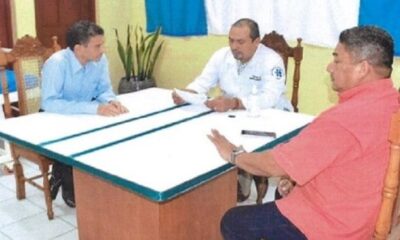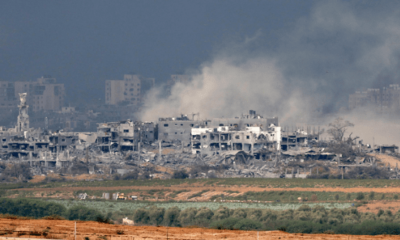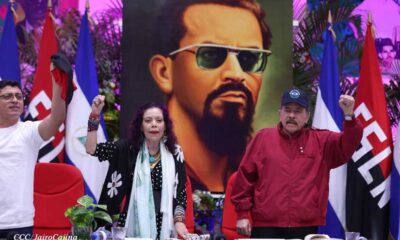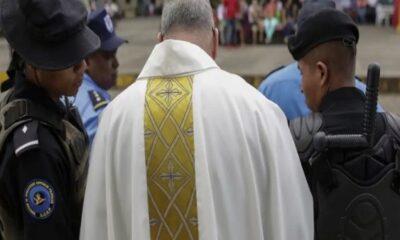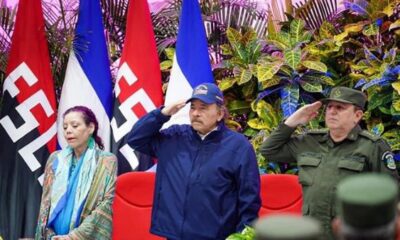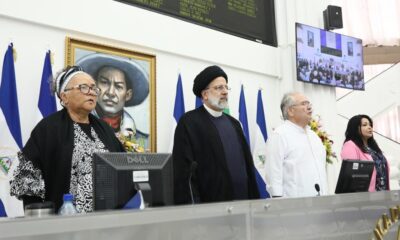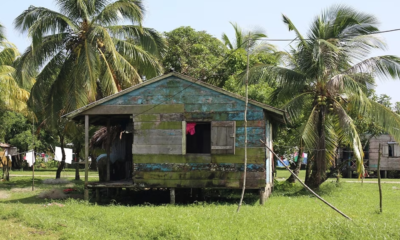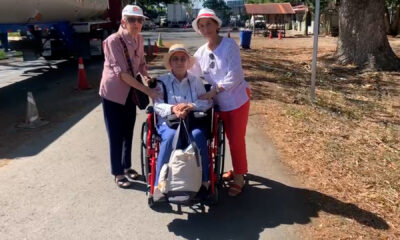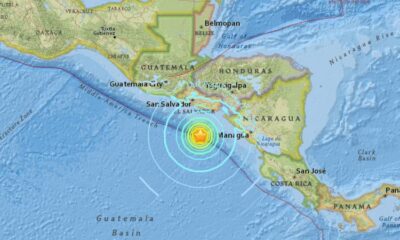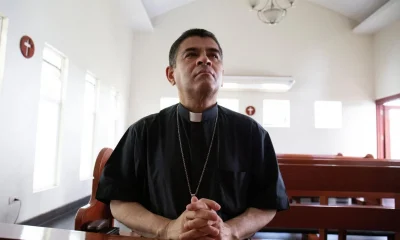Central America
Record exodus: over 800,000 nicaraguans forced to leave due to political crisis
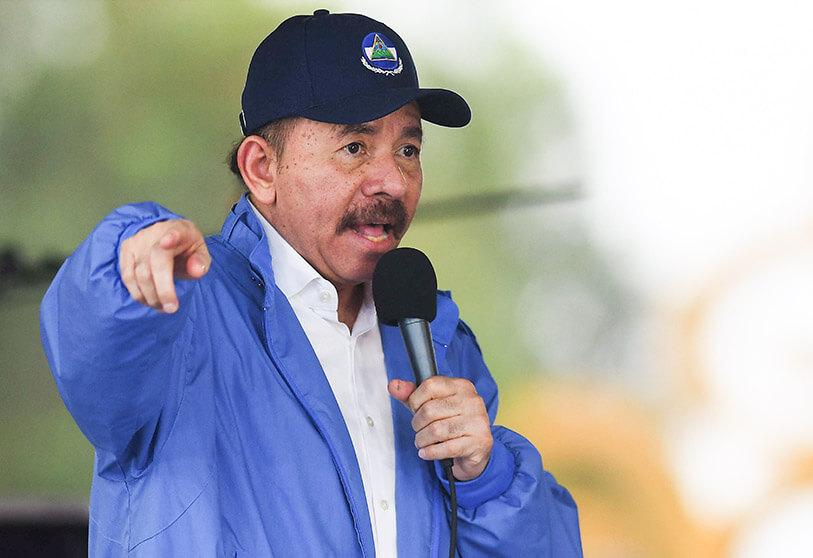
At least 800,000 Nicaraguans, representing 11.8% of the country’s estimated population of 6.8 million, have been forced to leave Nicaragua since April 2018, when a social and political crisis erupted in the Central American nation. This exodus is the “largest in history,” according to the humanitarian NGO Colectivo Nicaragua Nunca Más, which reported on Thursday.
“To date, around 800,000 Nicaraguans have been forcibly displaced to other countries due to political crisis and state violence,” reported the Collective in its statement. The organization, which is made up of Nicaraguan exiled activists based in Costa Rica, further noted, “This is the largest human displacement in Nicaragua’s history. In Costa Rica alone, over 250,000 Nicaraguans are currently applying for refugee status.”
The NGO stated that, “as a result of relentless repression” under Daniel Ortega’s government, “the country is facing the largest exodus in its history, mainly to the United States, Costa Rica, Mexico, and Spain.”
The organization also expressed concern over “the conditions in host countries,” saying that, “in most cases, [migrants] are unable to access health care, education, dignified housing, social security, job opportunities with adequate pay, or food security.”
In a prior report on the ‘Situation of Forced Displacement of Nicaraguans’ published in June 2023, the organization indicated that around 605,043 Nicaraguans had fled the country due to state repression against opposition members, religious figures, and critics of the Sandinista government.
This means that nearly 200,000 Nicaraguans left their homes and fled their country in the past 16 months alone.
According to recent data from the United Nations High Commissioner for Refugees (UNHCR), cited in February by the UN Group of Human Rights Experts on Nicaragua, a total of 440,280 Nicaraguans, or 6.5% of the population, sought asylum or refuge in third countries, mainly in the United States and Costa Rica, between 2018 and June 2023.
As of June 2023, UNHCR data also showed that 18,545 Nicaraguans had been formally recognized as refugees.
Central America
Arévalo accuses Porras and judge of undermining democracy in Guatemala

Guatemalan President Bernardo Arévalo denounced a new attempt at a “coup” orchestrated by the Attorney General’s Office. He also requested an extraordinary session at the Organization of American States (OAS) to address the country’s ongoing political crisis.
The president has been at odds with Attorney General Consuelo Porras, who has been sanctioned by the United States and the European Union for being “corrupt” and “anti-democratic.” Since 2023, Arévalo has accused Porras of launching investigations against his party, Semilla, and the 2023 elections as part of a scheme to prevent his inauguration in January 2024.
From the presidential office, Arévalo has said he continues to “resist” the “coup plotters,” but tensions escalated last Friday when Judge Fredy Orellana, at the request of the Attorney General’s Office, ordered the electoral court to annul the Semilla party’s promoter group. Arévalo interpreted this as an attempt to revoke the positions won by the party.
“Orellana, a hitman who distorts the law in service of Consuelo Porras, is attempting to force […] the unconstitutional removal of a mayor, 23 elected deputies […], the vice president, and the president of the country,” Arévalo said in a televised address on Sunday.
“We call on the international community not to turn a blind eye to the coup being attempted in Guatemala,” he added, speaking alongside his cabinet and congressional members at the National Palace in Guatemala City.
Arévalo requested that the Organization of American States hold an extraordinary session to present “the serious threats” to the Guatemalan Constitution and democracy perpetrated by Porras and Orellana.
Yesterday, Guatemalan Foreign Minister Carlos Ramiro Martínez reaffirmed the president’s statements, emphasizing the need “to go and expose the situation” Guatemala has been facing since last week due to the actions of the Attorney General’s Office.
Central America
New dismembered bodies found in San Juan river days after mass killing in Palencia

On the morning of Monday, October 27, Guatemala’s Volunteer Firefighters confirmed the discovery of two bodies and two human heads inside plastic bags in the San Juan River, located in the Zacualpía village at kilometer 21 of the Atlantic Highway, in the jurisdiction of Palencia.
The remains were found by personnel from Companies 85, 50, and Central, who responded after receiving a report about suspicious bags floating in the water. The gruesome discovery was made just a few meters from the site where eight tortured bodies were found under the San Juan Bridge on Friday, October 24.
Local authorities do not rule out a connection between both incidents and suspect they may be tied to the same criminal organization. Investigators from the Public Ministry and the National Civil Police arrived at the scene to gather evidence and transfer the remains to the National Institute of Forensic Sciences (Inacif).
According to data from the National Economic Research Center (CIEN), Guatemala recorded 2,154 homicides between January and August 2025, an increase compared to the 1,816 reported during the same period in 2024.
Central America
Four guatemalan soldiers arrested for stealing weapons from Northern Air Command

Four soldiers were arrested in connection with the theft of weapons from the Northern Air Command of the Ministry of Defense in Petén, Guatemala, following operations conducted by the Public Ministry (Prosecutor’s Office).
“During the operations, criminal scenes were processed, analyzed, and documented photographically, possible escape routes were identified, surveillance cameras were located, and potential witnesses were interviewed,” the Prosecutor’s Office explained in a social media post.
The detained soldiers were identified as Ludwin Jónathan Cardona Baltazar, charged with illicit association, dereliction of duty, and aggravated theft; and Josué Israel Pérez Jerónimo, Alain Omar Marroquín Soch, and Carlos Ernesto Ibarra Corrales, charged with dereliction of duty, according to Guatemala’s Prensa Libre.
The military personnel reportedly stole 55 rifles, 14,420 rounds of 5.56 mm ammunition, 92 magazines of 35 rounds each, 19 magazines of 20 rounds each, and three grenade launchers, “which were allegedly moved from the arms warehouse to the outside for illicit sale.”
The Ministry of Defense stated that it will keep its internal control mechanisms active to prevent similar incidents.
-

 International3 days ago
International3 days agoJamaica faces widespread destruction as hurricane Melissa hits the island
-

 International4 days ago
International4 days agoColombian president Gustavo Petro denies alleged ties to criminal networks
-

 International4 days ago
International4 days agoMexican journalist reporting on drug cartels killed in Durango
-
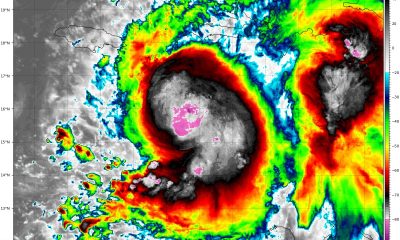
 International2 days ago
International2 days agoMelissa leaves path of destruction in Caribbean, 735,000 evacuated in Cuba
-

 International5 days ago
International5 days agoArgentina’s Milei secures strong victory and calls for dialogue after election surge
-
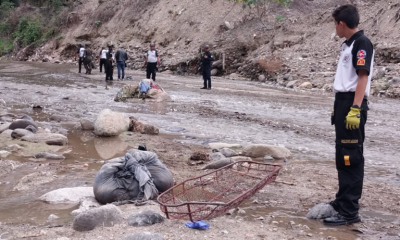
 Central America3 days ago
Central America3 days agoNew dismembered bodies found in San Juan river days after mass killing in Palencia
-
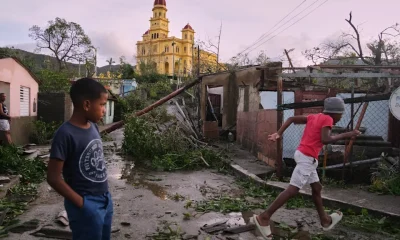
 International11 hours ago
International11 hours agoHurricane Melissa kills over 30, leaves thousands displaced in the Caribbean
-
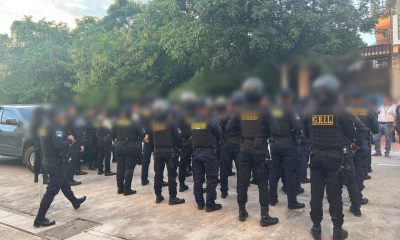
 Central America3 days ago
Central America3 days agoFour guatemalan soldiers arrested for stealing weapons from Northern Air Command
-
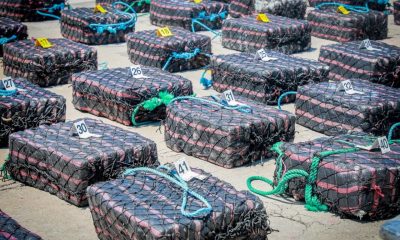
 Central America4 days ago
Central America4 days agoEl Salvador cracks down on narcotics: 24 tons confiscated in major anti-drug operation
-

 Central America3 days ago
Central America3 days agoArévalo accuses Porras and judge of undermining democracy in Guatemala
-
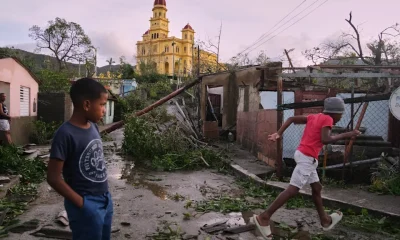
 International1 day ago
International1 day agoHurricane Melissa leaves Jamaican residents homeless as recovery efforts begin
-

 International5 days ago
International5 days agoMaduro accuses U.S. of aggression over Caribbean military drills
-

 International2 days ago
International2 days agoArgentina’s Milei opens dialogue with parties to push “Second-Generation Reforms”
-
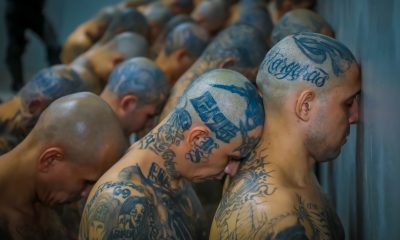
 Central America4 days ago
Central America4 days agoEl Salvador’s FGR prosecutes 89,875 gang members under state of exception
-
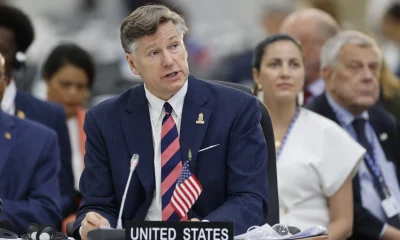
 International1 day ago
International1 day agoUS Deputy Secretary criticizes Mexico’s call to end Cuba trade embargo at UN
-

 International1 day ago
International1 day agoTrump orders immediate U.S. nuclear testing, ending 30-year moratorium
-

 International1 day ago
International1 day agoBrazilian president defends coordinated anti-drug operations after deadly Rio raid
-
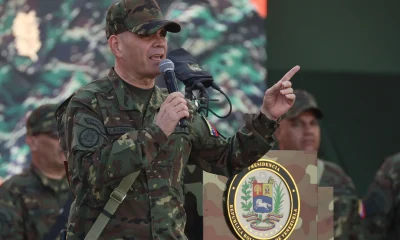
 International1 day ago
International1 day agoVenezuela warns citizens who call for invasion risk losing nationality
-

 International11 hours ago
International11 hours agoTrump sets historic low refugee cap at 7,500, prioritizes white South Africans
-
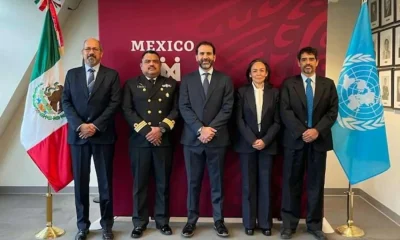
 International1 day ago
International1 day agoMexico advances continental shelf claims at UN Commission in New York
-

 International1 day ago
International1 day agoSimeón Pérez Marroquín, ‘El Viejo,’ detained for role in Miguel Uribe Turbay assassination plot
-

 International7 hours ago
International7 hours agoU.S. considering airstrikes on military sites in Venezuela, reports say
-

 International11 hours ago
International11 hours agoUNICEF: Over 700,000 children affected by Hurricane Melissa in the Caribbean
-

 International7 hours ago
International7 hours agoU.S. warns China over Taiwan during high-level defense talks in Kuala Lumpur
-
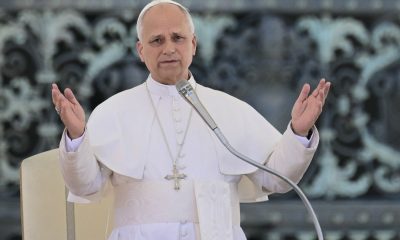
 International7 hours ago
International7 hours agoPope Leo XIV revives Global Compact on Education to confront cultural crisis































